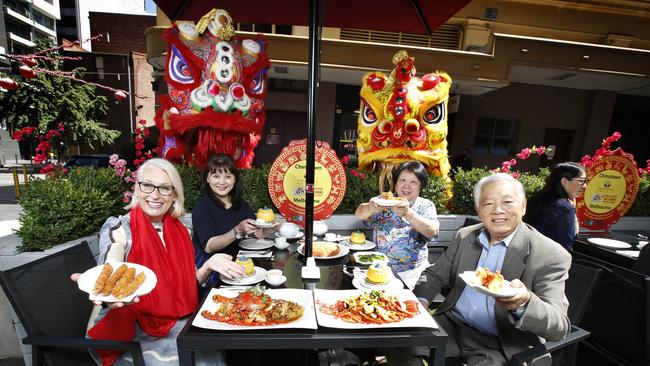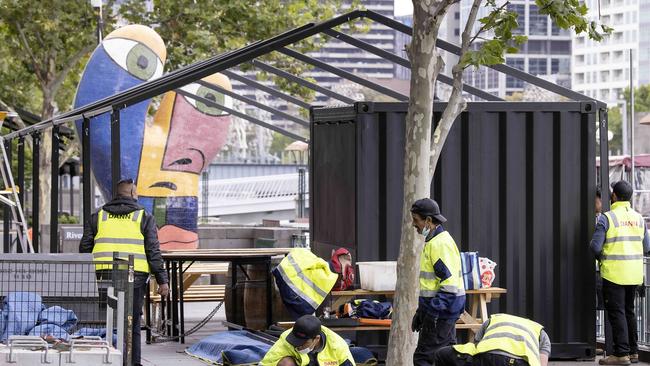Melbourne’s outdoor dining parklets could be here to stay post-pandemic
Melbourne’s outdoor dining parklets have been a winner, sparking calls for the pandemic arrangement to be permanent. It comes as Victoria hit its 36th day with no new local COVID cases.
News
Don't miss out on the headlines from News. Followed categories will be added to My News.
Victoria has recorded no new cases of coronavirus for 36 consecutive days.
It comes as councils have been urged to upgrade outdoor dining parklets using trees and public art amid a push for the successful pandemic arrangements to be made permanent.
Converting footpaths and parking spaces for alfresco dining has proved so popular during the pandemic that some Melbourne councils have started to extend their programs.
RMIT urban planning expert Thami Croeser said the parklets had created a buzz and contributed to a safer environment, especially at night.
“We’ve got a cafe culture, this is a perfect addition to that, it should be made permanent and expanded,” he said.
Mr Croeser said Melbourne could learn from overseas experience, where parklets had been upgraded with things like fireplaces, log cabins and public art.
“Here in the city where it gets hot you could have permanent trees growing in parklets,” he said.

The City of Melbourne has extended its program to July, and has commissioned a major evaluation of its economic and social impact to determine future plans.
Of 332 traders invited to extend their outdoor dining permits, 275 have accepted.
Lord Mayor Sally Capp said she would like to see outdoor dining continue in some form.
“Outdoor dining has helped hundreds of local restaurants, cafes and bars boost their capacity, increase sales and bring back the buzz,” she said.
“It has the potential to be a major drawcard for our city, particularly in spring and summer.”
Prominent restaurant owner Chris Lucas said he supported the program running in summer, but not through Melbourne’s winter when customers wanted to dine indoors.

“People want to use their cars to come into the city when it’s wet and cold, especially at night, but new bike lanes in the CBD are impeding traffic flow,” he said.
But Mr Croeser said the City of Melbourne had used only about 200 parking spots for its parklets. It had a total 25,000 on-street spaces and another 70,000 spots in commercial car parks.
“Even if this program, which looks pretty successful, was expanded to say, 2000-3000 carparking spaces, it’s still less than 10 per cent of the City of Melbourne’s parking availability,” he said.
Mr Croeser said that based on a City of Yarra survey of its alfresco program, he estimated traders with parklets had generated an average $10,000 extra in sales each month.
Yarra has also extended its program to July.


